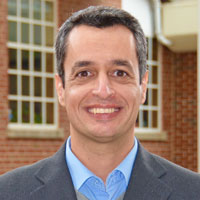Physician researcher calls for end to destructive practice of female genital mutilation
June 9, 2017
A commentary by Dilshad Jaff, MD, MPH, published online June 7 in the journal Medicine, Conflict and Survival, calls for an end to the practice of female genital mutilation/cutting in Iraqi Kurdistan.
Jaff is research adviser for conflict prevention and disaster preparedness in the Gillings School of Global Public Health’s Research Innovations and Global Health Solutions unit and adjunct assistant professor of maternal and child health at the School.
Female genital mutilation, or in Kurdish, khatana, was banned by the local Kurdish government in 2011, yet more than one-third of 6,000 Kurdish girls (ages 4 to 14 years) surveyed in 2016 had experienced it. Even though 87 percent of surveyed women said the practice should be ended, influential families, traditional birth attendants and religious leaders perpetuate the tradition, which has powerful physical, mental, psychological and public health consequences.
A number of innovations could decrease the frequency of the practice in Kurdistan, Jaff said. Messages, interventions and campaigns, distributed through social media and other e-health technologies, would increase awareness and improve health. Community-government partnerships could engage community leaders to become community health advocates.
One of the most available and valuable tools in Islamic culture is the art of storytelling, and Jaff proposes that storytelling about personal experiences can be an effective way to convey important public health messages related to the practice.
“Legislation alone is not sufficient to end khatana,” Jaff said. “More public health initiatives are needed if we are to eliminate this harmful practice.”
Public health and other leaders should use targeted information and multiple communication channels, he says, to develop trust and convince communities that the practice has lasting negative consequences for the health and safety of women and girls.
Share
Gillings School of Global Public Health contact: David Pesci, director of communications, (919) 962-2600 or dpesci@unc.edu

